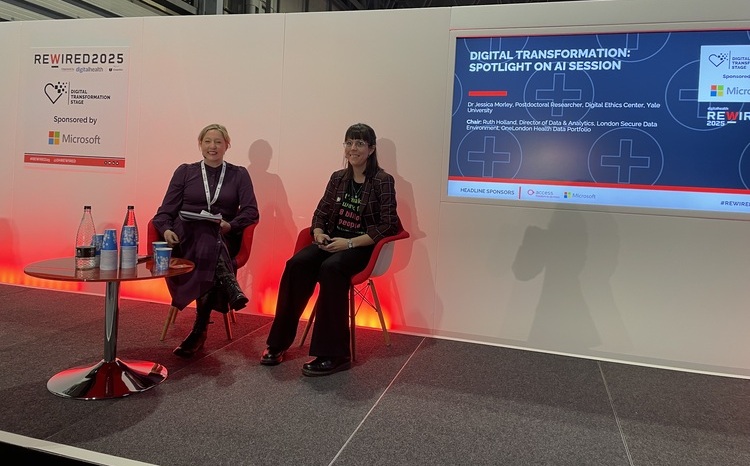Sensyne Health CEO believes data sharing confidence ‘will increase’
- 17 October 2019

The CEO of Sensyne Health has said he believes people’s confidence in data sharing in healthcare “will increase over time” but the public’s trust can be “lost very easily”.
During his address at the Giant Health Event in London on 16 October, Lord Paul Drayson, was asked whether he thought the public would become “more relaxed” about sharing their health data.
In response, the former Labour Life Sciences Minister said he thought it was “possible” so long as public trust is handled sensitively.
He said: “It very much depends on whether or not there is bad examples of data being used in ways which people find surprising and public trust is lost.”
Drawing on examples such as the MMR vaccine, the CEO emphasised that gaining full public trust would take time with patient’s needing to be able to see the benefits.
Lord Drayson said: “I think over time, people’s confidence will increase as they see the benefits in their healthcare, but it’s a very fragile thing and that trust can be lost very easily.”
Oxford-based, Sensyne Health applies AI algorithms, developed by researchers at the University of Oxford and Oxford University Hospitals NHS Foundation Trust, to anonymised patient data.
This data is then used to find potential clinical solutions which can be later sold to pharmaceutical companies.
It also promises that no data is sold, nor is any ownership or control of data transferred to it or its pharmaceutical collaborators.
Currently, Sensyne Health has agreed deals with five NHS trusts: Oxford University Hospitals NHS Foundation Trust, South Warwickshire NHS Foundation Trust, Chelsea and Westminster Hospital NHS Foundation Trust, George Eliot Hospital NHS Trust and Wye Valley NHS Trust.
Each trust receives £5m worth of shares in Sensyne and a royalty on any products developed using its data.
In his speech, Lord Drayson called the company’s model “unusual”, saying it is a “docking station” between the NHS and the life sciences sector.
“The NHS are our partners, not our customers,” he said.
Lord Drayson also addressed why there is a need for a national approach to NHS patient data, saying “the best AI is built on the best data sets”.
Though the UK has one of the “richest data sets” in the world, Lord Drayson argued that IT systems and the development of IT expertise needs to be improved.
“There also must be a strong infrastructure in order to support innovators,” he added.
READ MORE
- Sensyne Health plans to raise £60m through floating on London Stock Exchange
- Two NHS trusts sign agreements with Sensyne Health
- Sensyne Health’s gestational diabetes software to be used by three more trusts
- YouGov survey reveals willingness for patient data to be shared
- NHSE chief exec says data sharing restrictions will enhance safety






2 Comments
Public confidence in health data sharing is directly proportional to the control they are given over it.
. . . and they have NO control over it. So public confidence in health data sharing is NIL.
Comments are closed.